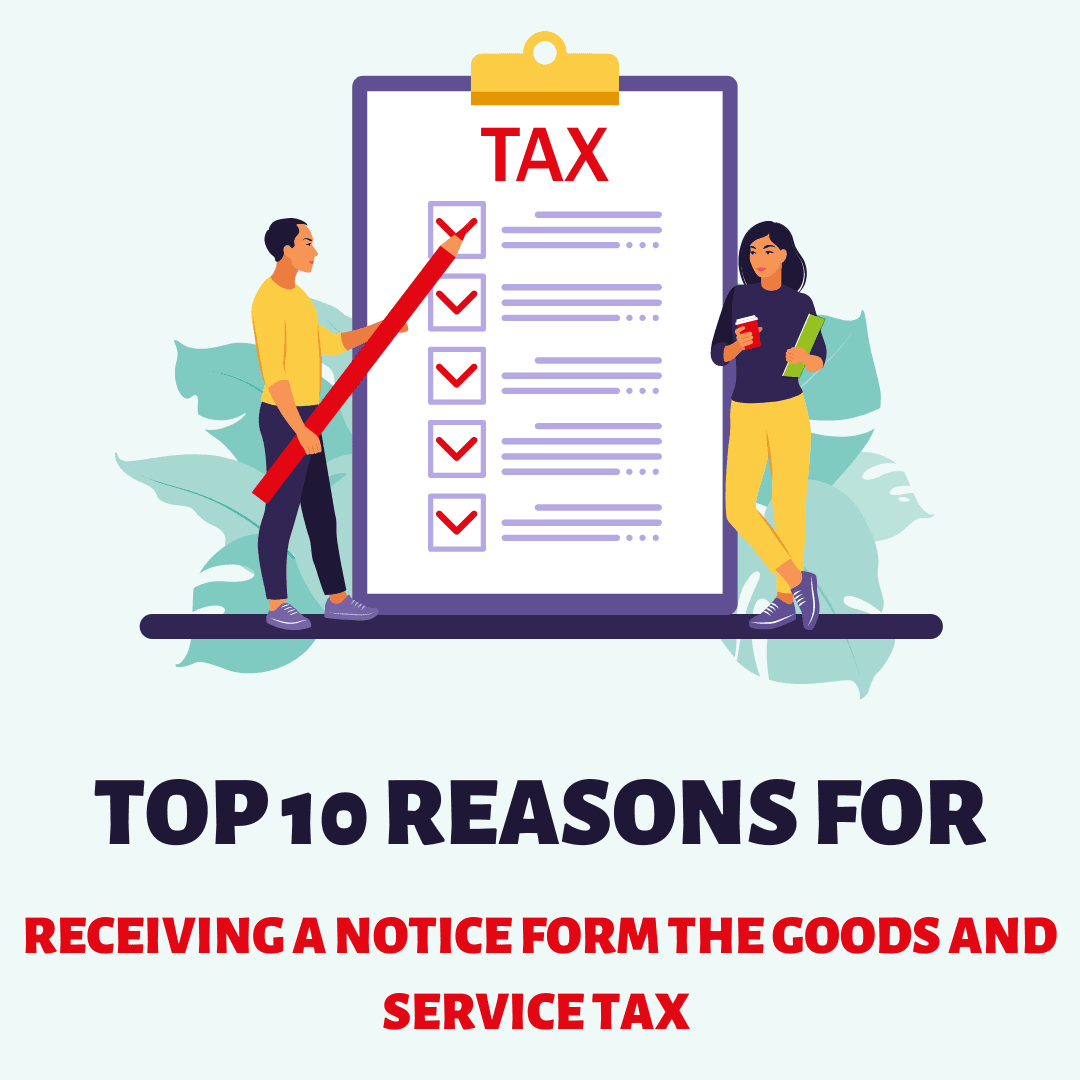The Goods and Services Tax (GST) has transformed the tax landscape in India, streamlining the process and increasing compliance. However, with this reform comes the responsibility for businesses to adhere strictly to the regulations, and failure to do so may result in receiving notices from the GST Department. Understanding the reasons behind these notices and knowing how to respond is crucial for maintaining compliance and avoiding penalties.

Here are the Top 10 Reasons why you might receive a notice from the GST Department:
1. Non-Filing or Delayed Filing of GST Returns: This is the most common reason for receiving a notice. It's imperative to file your returns on time to avoid such notices.
2. Inaccurate Documentation: Providing incorrect or insufficient documentation at the time of GST registration or during audits can trigger a notice.
3. Revocation request for a Closed GST Registration. If there's a request for revocation of a GST Number that has been closed, it may result in a notice.
4. Mismatch in Invoices: Discrepancies between purchase invoices and the GSTR-2B report can attract a notice from department.
5. Incorrect ITC Claims: Filing wrong Input Tax Credit claims in the returns is another common reason for the issuance of notices
6. Non- Payment of Taxes: Failing to pay the due taxes can certainly lead to notice from the GST authorities
7. E-way Bill Mismatch: A mismatch between GSTR-1 invoice and e-way bill details is red flag for the tax officials.
8 ITC Credit Refund Issues: Problems with ITC credit refunds can also result in receiving a notice.
9. Lack of GST Registration: Operating without GST registration when your turnover crosses the threshold is a serious offense and will result in a notice.
10. Higher GST Rates applied on Sales: Applying higher GST rates on sales, also known as profiteering, is another reason for the scrutiny.
If you receive a notice, Don't panic. Here's how you can respond effectively:
Read the notice Carefully: Understand the reason behind the notice and the details it seeks.
Gather Relevant Documents: Compile all necessary documents that can support your response or clarify the discrepancies
Consult a Professional: If needed, seek advice from a GST expert to ensure your response is accurate and Comprehensive:
Respond Promptly: Adhere to the timeline provided in the notice for your response to avoid further complications
Remember, most GST notice are not severe in nature but serve as a reminder for compliance. By staying informed and proactive, business can navigate through these notices with ease and maintain a good standing with the GST Department.
This blog aims to provide a general overview and should not be considered as professional tax advice. For specific concerns or complex situations, its always best to consult with a tax professional.

